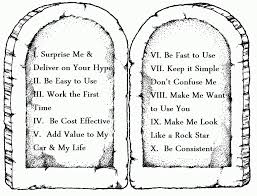Ephesians 2:11 - Therefore remember that at one time you Gentiles in the flesh, called “the uncircumcision” by what is called the circumcision, which is made in the flesh by hands –
I admit, it seems awkward to begin a Bible study with the sentence “Let’s talk about circumcision”, but since I cannot think of any really good way to introduce the topic, we’re just going to move ahead with it! 
Back when God chose Abraham to be the father of the Jewish nation, he made a covenant with him. The Jews, for their part, were to be God’s chosen people. They were to worship and serve him only, obeying and adhering to the Law. God’s part of the bargain was to be their God, to give the Jews the Promised Land, to make them a numerous people and to use them to bless all the nations of the earth (because the Messiah would come through the Jews). Circumcision of the flesh was the token of that covenant.
Thus, circumcision became the way to access the privileges of the covenant, but it also obligated the Jews to fulfill the duties which the covenant imposed.
At the time the covenant was instituted, every male in Abraham’s household (including Abraham himself) were circumcised. Going forward, every male child was to be circumcised on the 8th day of life (they also named the boy at the same time).
So in the Old Testament, circumcision of the flesh did two things: it clearly separated God’s people from the heathen/Gentile nations, and it consecrated them to God. Jews would often refer to the heathen or Gentile nations as ‘the uncircumcised’, which was a term of contempt. Not surprisingly, in the time of Christ, circumcision had become an issue of national pride and national identity to the Jews.
Whereas circumcision of the flesh was a part of the old covenant, circumcision of the heart is the symbol of the new covenant which Jesus brought about by his death on the cross.
Romans 2:28-29 – For no one is a Jew who is merely one outwardly, nor is circumcision outward and physical. But a Jew is one inwardly, and circumcision is a matter of the heart, by the Spirit, not by the letter…
In other words, Paul is saying that under the New Covenant those who belong to God circumcise their hearts, not their bodies. Circumcision of the heart is putting (cutting) off sin and living a holy life unto God. It separates us from the heathen world and consecrates us to God.
With this background in mind let’s look at the next verses in Ephesians chapter 2:
Ephesians 2:12-13 - …remember that you were at that time separated from Christ, alienated from the commonwealth of Israel and strangers to the covenants of promise, having no hope and without God in the world. But now in Christ Jesus you who once were far off have been brought near by the blood of Christ.
In these verses Paul is reminding the mostly Gentile Ephesian church that in past times, when circumcision was a fleshly covenant, the Gentiles were excluded from it. They were without God and therefore without hope, stuck in their sins, as we discussed last lesson. When they compare where they were with where the now are, spiritually speaking, it should humble them and also cause thankfulness and love for God to rise up within their hearts.
The same is true for all of us. We need to remember that God has forgiven all our debt and that fact should cause us to be thankful, joyful and grateful. I recommend taking two minutes, right now, and giving Jesus praise for paying the price for your sin.
I suspect that right now, all of us are thinking warm, fuzzy, happy thoughts about being forgiven. But how will we feel tomorrow when the car breaks down, or our girlfriend/boyfriend breaks up with us, or someone else gets the promotion you wanted? The truth is, we will still have cause to be thankful, joyful and grateful because despite unfavorable circumstances on earth, our eternal position has not changed!
We don’t always have control over what happens to us in daily life, but we always get to choose what our response to life will be. When things don’t go our way, will we get crabby and mean or will we deal with our circumstances in a mature way remembering that this world is not our final home? If we keep our eyes on Jesus and remember that he has forgiven us, it becomes much easier to overlook petty faults in others. Keeping our eyes on Jesus means keeping our joy and peace.
Now, moving on to chapter 2, verses 14-16, Paul continues to speak on the topic of unity in the body of Christ. You might think that these three verses seem a bit strange, but they begin to make sense when we look at the ancient relationship between the Jews and the Gentiles. 
Earlier in this study, we alluded to the fact that there was a definite separation between the Jews and the Gentiles. Let’s consider this for a moment. God chooses a nation of people and purposely separates them from the rest of the world. He gives them his favor, his blessing and his law. He gives them religious ceremonies and observances that were clear symbols of their separation to himself. He does the miraculous on their behalf.
As a result, over time the Jews developed an attitude of pride and arrogance; they despised the Gentiles. They considered themselves holy people, superior to others who did not have the law. They believed that they alone were the children of Abraham and they alone would find peace with God. Every holy day (Passover, Day of Atonement, Feast of Weeks, etc) was like a brick that built a wall around them, keeping the Gentiles out. Every sacrifice made at the temple added another brick to the wall of separation. Every circumcision and every reading of the Torah made yet another row of bricks upon the wall. Soon the wall of separation between Jews and Gentiles was formidable indeed, and that was fine with the Jews.
The Gentiles are no better. They have long scorned the Jews and their belief in a single, almighty God. They have taken every opportunity to persecute, rule over and take advantage of the Jews whenever possible.
Of course, you and I know that God ordained this temporary separation in order to bring the Messiah who would die for the sins of ALL men, Jew and Gentile alike. But the Jews and Gentiles lost sight of this great plan (assuming they ever really understood it before Jesus died, which is a topic of discussion for another day).
So, Jesus dies and rises again. He ascends to heaven and sends the Holy Spirit down to his people on the Day of Pentecost. The church is born. The gospel goes forth and people are added to the church daily. For those Jews willing to accept it, the Messiah has finally come. The Jews are being vindicated for their beliefs in God. Things are looking good - until Acts chapter 10. Because in Acts chapter 10, God gives a vision to the apostle Peter and says to him ‘what God has made clean, do not call common’. Immediately afterward, Peter is called to visit the house of a Gentile name Cornelius. Peter shares the gospel, the Holy Spirit falls, people are baptized with water and the Spirit, and thus another miracle has occurred… God is now adding Gentiles to the church!
The wall of separation between the Jews and the Gentiles was smashed on the cross. The coming together of the two groups into a single united body (the church) under the headship of Jesus Christ begins to manifest itself at the house of Cornelius. So we see that God both set up and tore down the wall of separation between Jews and Gentiles. But this new found oneness was difficult for both parties to accept, in fact, only through the blood of Jesus could reconciliation occur. This is what Paul was speaking of in verses 14-16:
Ephesians 2:14-16 – For he himself [Jesus] is our peace, who has made us both one and has broken down in his flesh the dividing wall of hostility by abolishing the law of commandments expressed in ordinances, that he might create in himself one new man in the place of the two, so making peace, and might reconcile us both to God in one body through the cross, thereby killing the hostility.
Paul continues to speak of this unity in the remainder of chapter 2.
Ephesians 2:17-18 - And he came and preached peace to you who were far off and peace to those who were near. For through him we both have access in one Spirit to the Father.
In this instance the Gentiles are the group referred to as ‘far off’ and the Jews are the group referred to as ‘those who were near’ (the Jews were nearer to God than the Gentiles, because they had a relationship with him).
The Greek word for “access” refers to the custom of introducing persons into the presence of a prince, or any other person greatly their superior.
So, the meaning of the verses is plain. Jesus came with a message of peace/salvation, which is for both Jews and Gentiles. The whole church, united as one body, has access or is introduced to the throne of God because of the blood of Jesus, with the help of the Holy Spirit. These verses are a clear teaching on the Trinity, or triune nature of God.
Ephesians 2:19 - So then you are no longer strangers and aliens, but you are fellow citizens with the saints and members of the household of God,
Anyone who accepts the sacrifice of Jesus is welcomed into the family of God. Jews and Gentiles are brothers in Christ. There are no strangers, no aliens, no step brothers or second class citizens; we are all entitled to the same privileges and inheritance in Jesus.
Consider your own family for a minute. While no one in your family is a stranger, some of them may still be strange, am I right? Trust me, I have a family too! 
I am sure it has not escaped your attention that the members of any one family are often very different. They have different looks, different tastes, different gifts, different ideas and different interests, yet the members of the family are bound together in love (at least that is the ideal situation). So it is with the body of Christ. Believers in America are different from believers in Africa, yet we are brothers and sisters in Christ. We both have a future home in heaven and we both have access to the same throne of God.
However, we don’t need to look halfway around the world to find differences in the body of Christ, do we? Even in your own local church there is much diversity. How do we handle that? The same way as we do in the natural family. We love one another and celebrate the different talents and skills of our body. We overlook faults because we love one another.
But before we link hands and sing ‘Kumbaya’, let’s admit that loving each other isn’t always a feeling, it’s a choice. Obviously, there will be times we disagree about what shade of paint to use in the lobby, or how often to mow the grass. We may not like every Bible study teacher or the new bulletins. These differences can cause loving feelings to disappear, but if we make love a choice, we can get through our differences with our family intact. God’s love for us, which is central in chapter 2 of Ephesians, is the example for us to love each other. God chose to love us, and his choice even included the death of his son. Surely, we can choose to overlook minor differences within our group!
Ephesians 2:20-22 …built on the foundation of the apostles and prophets, Christ Jesus himself being the cornerstone, in whom the whole structure, being jointed together grows into a holy temple in the Lord. In him you also are being built together into a dwelling place of God by the Spirit.
The comparison of the church with a building is common in the scriptures. The comparison was probably taken from the temple which was a building of great beauty, expense and majesty. Also, before the Messiah, it was the sacred place on earth where God dwelt. Now that Jesus was resurrected, the people of God (the church) are now the places were God dwells.
The concept is a simple one. The OT prophets and NT apostles both reveal the true foundation of the church, which is Jesus. In fact, Jesus is both the foundation and the cornerstone of the church. He is the one who binds together and unites the Jews and Gentiles, just like the cornerstone unites different walls together into a cohesive building. All Christians, including the Ephesians and ourselves, are a part of this structure.
